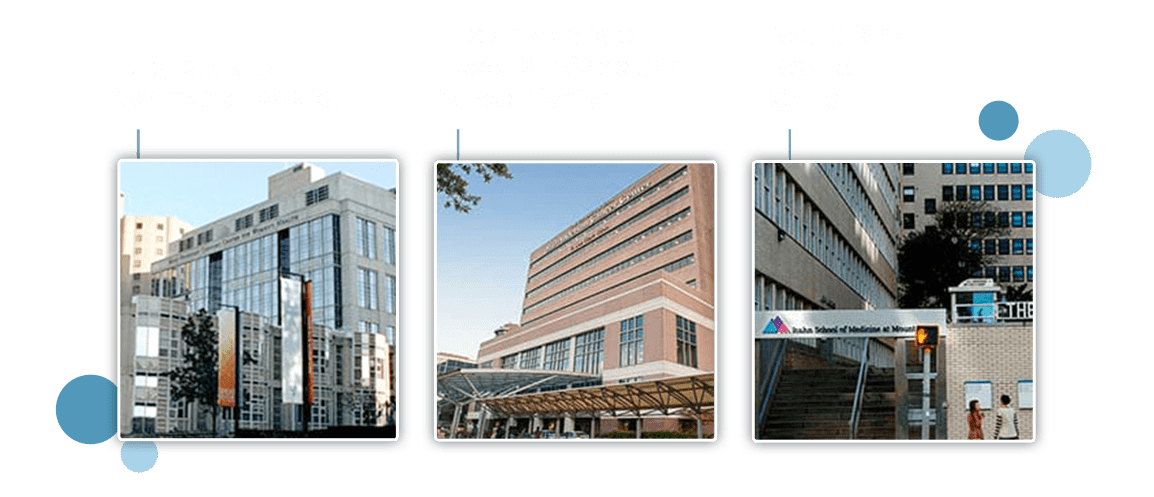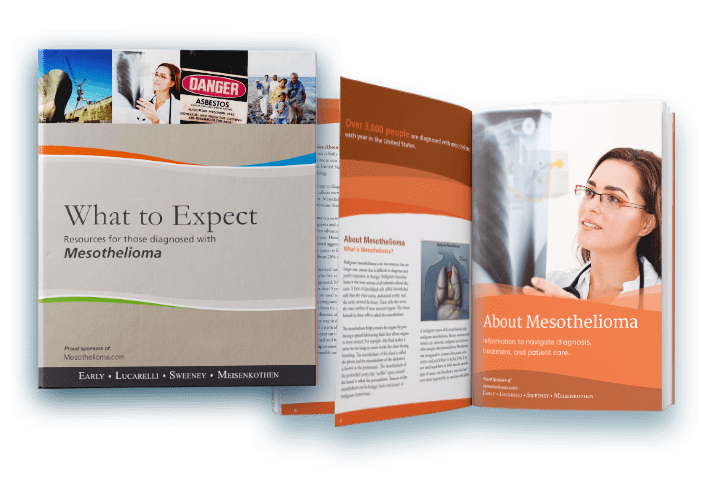01. First Signs of Mesothelioma
What Are the First Signs of Mesothelioma?
Mesothelioma symptoms can take 10 – 50 years to develop afterasbestos exposure. Signs of万博专业版may vary based on tumor location and disease stage. However, there are common signs of the disease.
What Are the Most Common Mesothelioma Symptoms?
- Abdominal pain
- Chest pain
- Coughing or wheezing
- Difficulty breathing (dyspnea)
- Fatigue and muscle weakness
- Fever and night sweats
- Fluid buildup
- Loss of appetite
- Unexplained weight loss
Early signs of mesothelioma are particularly difficult to detect, as they are mild. Individuals typically ignore symptoms or attribute them to more common conditions. Studies have shown early warning signs of chest or abdominal pain and fluid buildup. Fluid buildup is referred to aspleural effusionorperitoneal effusion, depending on cancer location. Fluid buildup often presents as swelling or bloating.
During the later stages of mesothelioma, tumor growth leads to worsening symptoms. Late-stage warning signs commonly include pain, loss of appetite, unexpected weight loss and fatigue.
02. Symptoms by Type
Common Symptoms by Mesothelioma Type
Each type of mesothelioma develops in a different area of the body. As a result, symptoms may vary across types. Mesothelioma types are based on tumor origin.
Identifying location-specific mesothelioma symptoms can help doctors make an accurate diagnosis. The location of symptoms often determines where to conductimaging scansandbiopsies. For example, trouble breathing may necessitate a chest X-ray.
Pleural Mesothelioma Symptoms
Malignant pleural mesothelioma develops in the linings of the lungs (pleura). Symptoms often manifest in the thoracic cavity (chest) and cause respiratory problems.
Common Pleural Mesothelioma Symptoms
- Chest pain
- Persistent dry cough or wheezing
- Shortness of breath
- Pleural effusion
- Unexplained weight loss
- Difficulty swallowing (dysphagia)
- Fatigue
- Loss of appetite
- Fever and night sweats
- Coughing up blood (hemoptysis)
- Body aches
- Blood clotting disorders
Pleural mesothelioma is often misdiagnosed as the flu, bronchitis, pneumonia orlung cancer.
Peritoneal Mesothelioma Symptoms
Peritoneal mesothelioma develops in the lining of the abdomen (peritoneum). Most symptoms present in the abdominal region. There are multiple organs within the abdominal cavity, so peritoneal mesothelioma symptoms may vary based on tumor location.
Common Peritoneal Mesothelioma Symptoms
- Abdominal bloating (distention)
- Abdominal pain
- Abdominal swelling
- Peritoneal effusion
- Nausea and vomiting
- Unexpected weight loss
- Loss of appetite (anorexia)
- Fever and night sweats
- Anemia
- Bowel obstruction
- Hernias
Peritoneal mesothelioma is often misdiagnosed as irritable bowel syndrome (IBS) and Crohn’s disease.
Pericardial Mesothelioma Symptoms
Pericardial mesothelioma develops in the lining of the heart (pericardium). Symptoms typically present in the chest cavity. Due to the aggressive nature of pericardial mesothelioma, symptoms typically progress quickly.
Common Pericardial Mesothelioma Symptoms
- Chest pain
- Pericardial effusion
- Heart murmur
- Heart palpitations
- 不规则heartbeat (arrhythmia)
- Fever and night sweats
Pericardial mesothelioma is often misdiagnosed as coronary artery disease, heart failure or other heart-related cancers.
Testicular Mesothelioma Symptoms
Testicular mesothelioma develops in the linings of the testes (tunica vaginalis testis). Though cases are limited, commonly reported symptoms include pain and swelling in the testicles.
Common Testicular Mesothelioma Symptoms
- Fluid buildup
- Swelling around the scrotum (hydrocele)
- Testicular pain
- Inflammation of the epididymis (epididymitis)
- Lump or mass in the scrotum
Testicular mesothelioma is extremely rare and often misdiagnosed as a hernia.
Resources for Mesothelioma Patients
03. Symptoms by Stage
Mesothelioma Symptoms by Stage
Symptoms of mesothelioma differ based on stage. Patients with stage 1 or stage 2 mesothelioma usually experience milder symptoms than those with stage 3 or stage 4 cancer.
What Are Symptoms of Early- and Late-Stage Mesothelioma?
Malignant mesothelioma symptoms are often grouped into early- or late-stage categories because there is overlap between the four levels of disease progression. In other words, many symptoms are the same for stage 1 and stage 2, and many are the same for stage 3 and stage 4.
Symptoms are usually more aggressive during the late stages because the cancer has spread, ormetastasized, to other organs and lymph nodes.
Factors Influencing Symptoms of Mesothelioma
Timing and severity of mesothelioma symptoms vary from case to case. However, studies have revealed several factors that can influence mesothelioma symptoms.
- Duration of asbestos exposure:Long-termasbestosexposure may cause symptoms to emerge sooner.
- Amount of asbestos exposure:High levels of asbestos exposure may cause symptoms to emerge sooner.
- Type of asbestos:Exposure tocrocidolite, one of the most dangerous types of asbestos, may cause symptoms to emerge sooner.
- Cancer cell type:Aggressive mesothelioma cell types may increase the severity of early symptoms.Epithelioid mesotheliomasymptoms are typically less severe thansarcomatoid mesotheliomasymptoms.
- Metastasis:Aggressive spreading to multiple vital organs may increase the severity of early mesothelioma symptoms.
Mesothelioma specialistscan typically provide patients with a general understanding of what symptoms they may expect at the time of diagnosis. Patients should share all symptoms and symptom progression with their physician to ensure they receive the proper treatment and care.
04. Symptoms and Diagnosis
How Mesothelioma Symptoms Aid Diagnosis
医生通常由肛门启动诊断过程yzing patient symptoms. Patients should seek medical care immediately if they recognize common symptoms of mesothelioma. Individuals with a history ofasbestos exposureshould notify their doctor and maintain yearly checkups.
If doctors are aware of previous exposure, they can proactively look for asbestos disease symptoms to facilitate early diagnosis. Early detection often allows patients to undergo aggressive treatment options, which may improvemesothelioma prognosis.
How Physicians Address Mesothelioma Symptoms
- Review the patient’s medical history
- Conduct a thorough physical examination
- Order blood tests to identify risk factors and rule out other conditions
- Perform imaging scans on areas where symptoms present
- Conduct a biopsy to determine malignancy
Patients must receive an accuratediagnosisto determine the best treatment plan. Treatment plans will address disease progression, as well as the management of symptoms.
05. Treating Symptoms
Treating Mesothelioma Symptoms
Once patients receive an accurate diagnosis, they can work with their medical care team to establish a treatment plan. In addition to treating the disease, treatment plans also help patients manage their symptoms.
万博专业版间皮瘤治疗可能称为看台tive or palliative. Curative treatments aim to remove as much of the cancer as possible, whilepalliative treatmentsaim to reduce symptoms. In some cases, a single treatment can offer curative and palliative benefits.
How Do Curative Treatments Reduce Symptoms?
Surgery, chemotherapy and radiation therapy are three of the most commonmesothelioma treatments. Oftentimes, these treatments remove or shrink cancerous tumors and tissues, alleviating related symptoms.
For example, chemotherapy may shrink a pleural mesothelioma tumor. This can reduce pressure on the lungs, improving cough, difficulty breathing and chest pain. Surgery may remove a peritoneal mesothelioma tumor. This can reduce pressure on organs throughout the abdomen, improving abdominal pain, bowel obstruction and bloating.
How Does Draining Fluid Reduce Symptoms?
Pleural effusionandperitoneal effusionare two of the most common mesothelioma symptoms. Fluid buildup puts pressure on vital organs, causing an array of symptoms. Draining fluid can offer relief to patients.
Common Palliative Surgeries Used to Drain Excess Fluid
- Hydrocelectomy
- Paracentesis
- Pericardiocentesis
- Pleurocentesis
- Pleurodesis
- Thoracentesis
Doctors may also suggest a catheter to control fluid buildup. For pleural mesothelioma, a catheter is placed in the chest, and for peritoneal mesothelioma, a catheter is placed in the abdomen. This allows physicians or patients to continuously drain fluid, alleviating associated symptoms.
The PleurX™ catheter system is an increasingly popular at-home option for reducing pleural effusion and improving related symptoms.
Can Alternative Treatments Improve Symptoms?
Many patients find success withalternative treatmentsand reducing symptoms. Alternative treatments may include acupuncture, touch therapy, light therapy, massage therapy, physical therapy and pain medication.
Patients should discuss potential alternative treatments with their medical care team.Mesothelioma specialistshave extensive knowledge regarding successful case studies, emerging treatments and the latest mesothelioma research.








